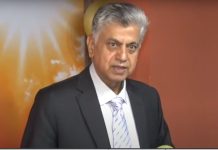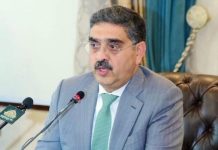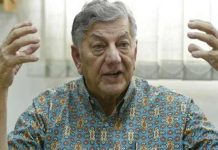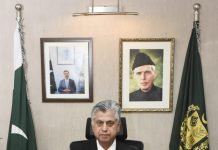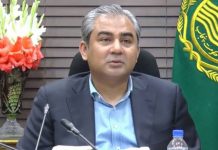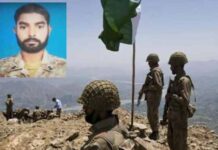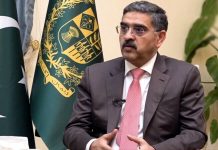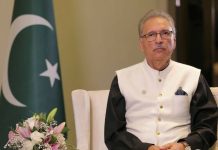
A three-judge bench headed by Justice Tahira Safdar also cancelled Gen (r) Musharraf’s right of defence due to his repeated non-appearance before the court.
Musharraf is facing a treason trial under Article 6 of the Constitution as well as Section 2 of the High Treason Act on a complaint moved by the federal government. During the proceedings, Musharraf’s lawyer Salman Safdar said the former military dictator is ‘fighting for his life’, adding that he is not physically or mentally capable of returning to the country. The counsel said he was embarrassed by repeatedly submitting requests to adjourn the case’s hearing. He said his client is rapidly losing weight, adding that he is unable to walk and uses a wheelchair. He said the former military dictator is having ‘heart chemotherapy’ because of which his health has deteriorated. He asked for one more chance so that Musharraf can himself appear in the court.
Justice Safdar remarked that the Supreme Court had given a verdict, to which the lawyer responded that he is aware of this, and requested that the plea be accepted on the basis of compassion.
The prosecutor’s lawyer Dr Tariq Hassan in his arguments said the court had given Musharraf the chance to give his statement through a video link. He presented arguments regarding Musharraf’s health in response to which Justice Safdar enquired, “Are you speaking against his physical health?”
Justice Nazar Akbar asked if he wants confirmation about Musharraf’s health, which the lawyer denied. Justice Shahid Karim that they need to look at whether or not to approve the request to adjourn the case. The prosecutor’s lawyer opposed the adjournment. Later, the three-judge bench rejected Musharraf’s plea to adjourn the case.
“In view of the established principle that a trial could not be held in abeyance or could be adjourned for an indefinite period couple with findings of the Supreme Court, whereby it was held that the accused being fugitive from law, thus loses his right to audience, also lost to have an advocate appointed to defend him unless he surrenders himself before the court,” read the written order. “As decided by the Supreme Court, the learned counsel presently representing the accused neither could represent him nor could defend him [accused] with the exception the accused appears and surrenders himself before the court,” it added.
The special court also directed the Ministry of Law and Justice to recommend a panel of advocates to defend the former army chief, in line with Section 9 of Criminal Law Special Court Act 1976. “In the view of the described state of facts and in compliance of the decision given by Supreme Court for further proceedings of the trial a counsel is to be appointed to defend the accused as required by the Section 9 of the Act 1976. The Ministry of Law and Justice, Government of Pakistan, is directed to submit a panel of advocate for the purpose along with the package of fee to be paid to the advocate, so appointed to enable this court to further proceed with the case, as required,” the verdict read.
Later, speaking to the media, Musharraf’s lawyer said they presented medical and photographic evidence in court so that the judges can get an idea of Musharraf’s condition. He said there are no two opinions about his client’s current condition, adding that he is very unwell.
Safdar said the current plea is not an excuse, adding that Musharraf stayed in the country for three to four years but the trial had not been completed. “It was a small trial, it would have been reasonable if it was completed in his presence,” he said.
The court has now set June 27 as the next date of hearing.


